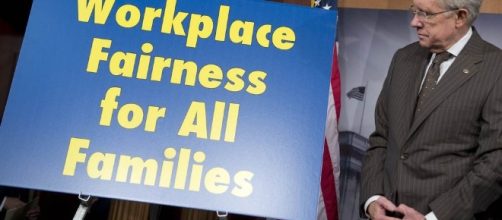Can American democracy be saved? This question concerns every American. Writing about dying democracy in "Foreign Affairs" just before the 2016 election, Daron Acemoglu faulted our inability to share prosperity and technological advances. He called us to “reform our tax and entitlement system; reduce the increasingly onerous red tape confronting small businesses; improve our badly failing educational system … start investing in our long-neglected infrastructure; and at last, recognize some of the most debilitating problems facing our society’s most disadvantaged, including violence in our inner cities and mass incarceration in our prisons.” This is about as bipartisan and sensible as you can get.
It even has some Trump in it when it speaks of taxes entitlements and infrastructure. Why can’t we save democracy?
It’s not just American democracy that is at risk
American Democracy Is Dying, and This Election Isn’t Enough to Fix It https://t.co/t77oin7Rxh pic.twitter.com/TcphdNpoFk
— Stephen C. Rose (@stephencrose) February 23, 2017
In today's polarized environment, it comes down to how we define America and how we understand democracy. If we define America as inclusive, embracing all, Mr. Acemoglu’s agenda, it gets done ASAP. If we define America as anything less inclusive, we run into a wall. Democracy is both the right to vote and the right to life, liberty and the pursuit of happiness. That understanding is consistent with Mr.
Acemoglu’s agenda. We are open to sharing and cutting red tape and improving the situation of those who have been excluded. If on the other hand this understanding of America is viewed negatively, we have a problem.
Is democracy dying? https://t.co/tqp2skTXDR
— Stephen C. Rose (@stephencrose) February 23, 2017
American democracy must be remade if it is to survive
The problem of American democracy is starkly illuminated in new research from Yascha Mounk, a Harvard professor who released some remarkable facts on Public Radio International, following Trump's November election win. “Voter participation has gone down in a lot of countries,” Mounk said. “People are less and less satisfied with particular governments, they no longer trust politicians, approval ratings for Congress, parliaments, and so on, are very, very low.”
Mounk's study, conducted with Roberto Stefan Foa, uncovered three signs of radical growth in alienation from democratic norms n America.
Less than a third of American millennials studied thought it was necessary to live in a democracy. One in six young Americans said they would be OK with a military government. If you narrow the sample down to affluent millennials, a whopping one in three could accept an authoritarian regime. .But the most serious finding, said Mounk, “is simply the complete erosion of democratic norms in the political system.”
Can millennials be a force for American Democracy?
Mounk views Trump and the GOP together as a sign of the decay of democracy, He says of Trump's’ many authoritarian acts, ”The fact that the president-elect is able to engage in them, and that he hasn’t been roundly denounced for it by members of his own party, are real signs of an erosion of democratic norms here in the United States.”
Mounk says that the only way millennials can be wooed back to democracy is by offering serious economic reform and eliminating the elitism in politics. Without such changes, and without being inclusive, democracy’s future in America, and perhaps everywhere, is bleak indeed.

